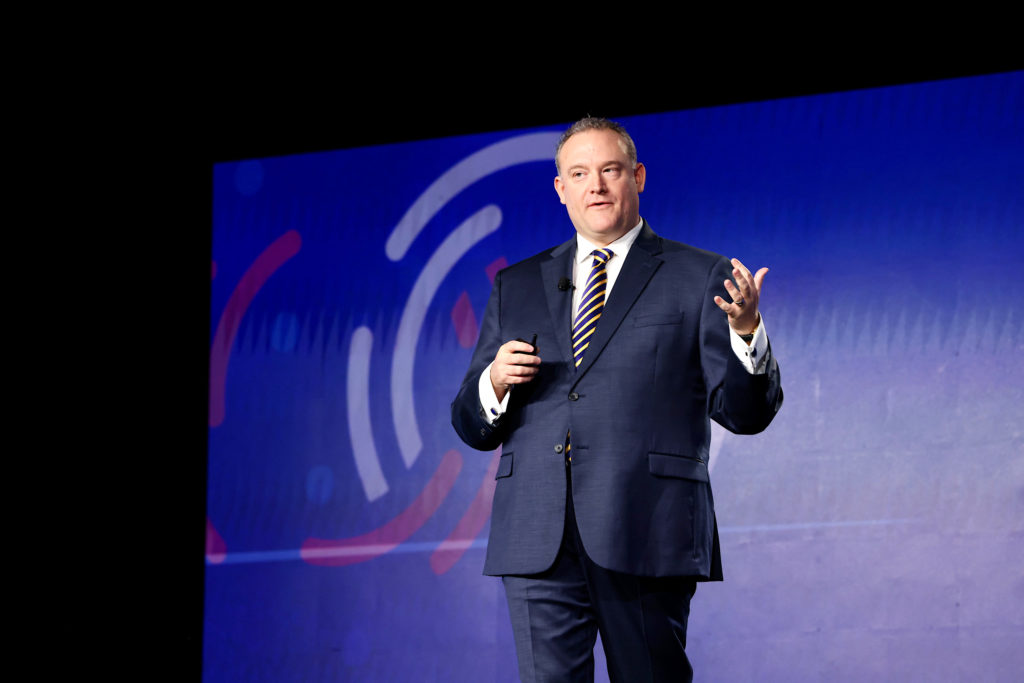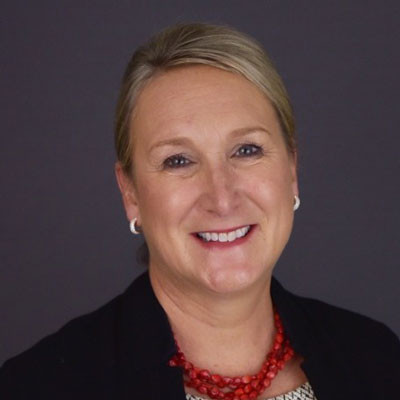
WASHINGTON, DC — Whether they think the US is in a recession or not, providers must prepare for “sticky inflation,” rising interest rates and layoffs that may hurt the overall economy without shaking loose the kinds of workers interested in healthcare.
That was the warning from economic futurist Jason Schenker, who opened Day Two of the NIC Fall 2022 Conference here with a decidedly mixed message. The bottom line: Owners and operators must keep the long-game in mind as they navigate what looks to be a continued economic slide.
“The next two to three years are going to be tough: You’re going to be scavenger hunting for your labor. Labor costs are high,” said Schenker, founder of Prestige Economics and chairman of The Futurist Institute, which has been ranked by Bloomberg News as a top financial forecaster in 46 categories. “You’re going to have some of the highest power and natural gas builds to heat and power your facilities that you’ve ever had in your history and you are going to face other inflationary pressures, and some of you are struggling still with lower occupancies.”
But being a cash-flow business whose services will be much in demand as 1945-born baby boomers begin turning 80 offers promise for those who can hold to their operational and financial standards in the meantime.
“If we look past the next 24 to 36 months, I would be much more optimistic, even more so because of the higher interest rates, which prevents an overbuilding of facilities,” Schenker said.
Back-to-back quarters of declining gross domestic product is often associated with a recession, but Schenker noted that many economists still hesitate to declare one largely because unemployment remains so low.
That’s not good news for skilled nursing or senior living operators, who Schenker said will likely not find a bright lining if a recession becomes entrenched. Following layoff notices from tech firms, he’s predicting job losses that mostly affect white-collar workers.
“They don’t want to go work in assisted living or memory care, right?” he asked. “This isn’t going to help you out labor force-wise. These aren’t folks with blue-collar jobs, folks who work with their hands, folks in medical. …Those sectors see more demand than ever and we just don’t have enough people.”
Moving for ‘real’ wage gains
The Bureau of Labor Statistics estimates the healthcare sector will need a total of 1.1 million new healthcare aides between 2020 and 2030, and skilled nursing still needs to recruit more than 200,00 to fill the gaps created by COVID conditions.
In addition to nurse aides, therapists and nurse practitioners will be among the 10 most needed workers over the next decade, he added. As most providers know, it’s not getting easier to find them or keep them.
Schenker referred to recent PEW data that found 60% of workers who left a company to go to another employer had real wage gains, meaning they made enough extra to more than cover inflation. But only 47% of those taking new jobs within their existing company could say the same.
“If you want to get paid, you’ve got to go elsewhere. That’s the message people are taking away,” Schenker said. “If you just want to beat inflation, you’ve got to go somewhere else. That’s pretty scary when you think about staffing needs.”
We bet on ourselves and our services.
Leigh ann barney
In addition to staffing challenges, Schenker said providers will likely be hurt by unusually high natural gas prices, which typically drop this time of year. But “Cold War 2” is straining the international supply of gas, and related rate increases will continue to press the cost of everything else higher.
He posited that as long as international conflict between Russia, Ukraine and the US sustains itself, no amount of rate increases by the Federal Reserve will bring inflation back in check.
So, he said, it will be up to operators to find ways to weather the storm until the economy settles or demand starts to climb.
Don’t let revenue go backward
Many gathered here this week still appear interested in growth, despite mounting headwinds such as the increasing cost of capital and predictions of another rate hike coming Sept. 21.
In an afternoon session on scaling operations, Leigh Ann Barney, president and CEO of Trilogy Health Services shared her company’s ongoing strategy for growth. It’s one that begins by building up services and the staff to run them before moving on to resident recruitment.
She cautioned other providers in skilled care and senior living to be sure they can deliver on promises in any market they enter, regardless of the economy.

“That allowed us to become leaders in our market and build census,” she said. “I feel that if you try to go out and sell something and you’re not really doing it, then you’re going to end up sort of in a doom loop where then you lose residents or you tarnish your reputation a bit. Then you have to recover from that because it’s going to make your revenue go backward.”
Barney and others on the panel talked of synergizing strategy and opportunity, but staying committed to a key set of principles even as the excitement of the coming demographics and the potential need gets closer.
Trilogy, for instance, is in four states and has no plans to push beyond its Midwest boundaries, Barney said. Within that market, however, she is looking for opportunities to build and take on risk when and where it makes sense.
“We do a strong study on the demographics of those markets to make sure they’re going to fit what we do because we do look for the high private pay, and we bring the services and the amenities to those markets,” she said. “We bet on ourselves and our services, of course, so if you have confidence in that and you’ve done your due diligence, then you feel good about it.”
About 2,800 lenders, operators and other seniors housing and care experts are gathered for this year’s DC conference. That’s up about 15% over last year, according to NIC President and CEO Brian Jurutka. The conference concludes Wednesday.




